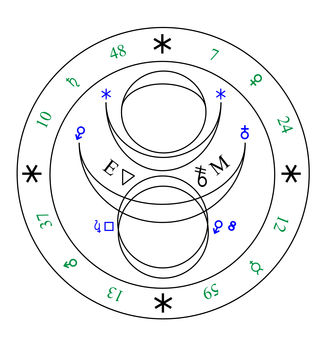Unconscious
Divination: We All Just Want to Know What’s Coming Next
A brief examination of divination.
Posted January 24, 2018

We can define divination as using a systematic approach in order to try to gain insight into a situation or problem (Peek, 1991). In the Harry Potter world, divination includes more than just attempting to solve problems. It is the ability to see—and even be—in the beyond; although this idea of divination is not isolated to just the magical world. Many Muggles (non-magic folk) also believe that divination includes some form of mystic power that allows one to predict future events, but few believe in its accuracy. When divination professor Sybill Trelawney exclaimed to Ron in Harry Potter and the Prisoner of Azkaban “Your aura is pulsing! Are you in the beyond? I think you are!” the reader gets a little glimpse into what many wizards and witches would recognize as divination.
Divination—in both Harry’s world and our own—includes tea leaf reading, palmistry, astrology, numerology, crystal ball gazing, fortune-telling, and dream interpretation. Just like in the Muggle world, divination is more or less viewed skeptically by the many of those in the magical community of the Harry Potter world. In fact, those who support divination are often called superstitious and eccentric. Hermione Granger, one of Harry Potter’s best friends, explained that divination and those who practice it are “wooly” and it requires “a lot of guesswork.” Transfiguration professor Minerva McGonagall exclaimed that divination was “one of the most imprecise branches of magic” and the least reliable. However, divination wasn’t always viewed so negatively.
Centuries ago in the Muggle world, Alexander the Great would visit the Oracle of Amun, who would provide him with insightful counsel and predictions of the future. Oracles were considered to be the conduits for the gods on earth. The prophecies the Oracle provided to Alexander were considered to be words directly from the gods. The Seers of ancient times also practiced divination and would interpret signs provided by the gods. Both Oracles and Seers were revered by many in Greece and people would travel great distances to speak with them. Even though Oracles and Seers were popular among the people, there were still those that did not believe.
In Greek mythology, Cassandra, daughter of the lords of Troy, predicted that Troy would fall by a clever trick. Shortly after Troy was duped and destroyed by the Trojan horse. Cassandra often had violent visions of the future, but sadly, very few people believed her, even when her predictions came to be true. It is likely that J.K. Rowling based her characterization of Professor Trelawney on the ancient Greek Seers. Cassandra’s story is similar to that of Professor Trelawney’s in some ways. Like Cassandra, Trelawney was often scoffed at by her peers and rarely believed by the community. When asked to make a prediction by Dolores Umbridge in Harry Potter and the Order of the Phoenix, Professor Trelawney stuttered “Erm. You…..are in great danger!” To which Umbridge replied, “Lovely!” Although often wrong, there were several times when Professor Trelawney’s dark predictions did come true, such as when she predicted the rebirth of Voldemort. Her dramatic flair for death and darkness scored her a few true believers, such as Parvati Patil and Lavender Brown, but most of the magical community regarded her as an old fraud.
Today we know that most of the methods used in divination, such as reading tarot cards or gazing into crystal balls, are not backed by any type of scientific proof. Whether that makes them less valid or not depends on the individual. Although one may not believe any sort of cosmic force helping direct the shuffling or cards of the throwing of coins as in the case of the I Ching, this does not mean there is no value in these practices; the absence of evidence is not necessarily evidence of absence. Some divination practitioners feel they are accessing and dialoguing with their own subconscious. The connections one finds and interpretations one makes regarding a collection of card images or the lines in a horoscope reading, help show where one’s mind is and what issues, concerns, hope, fears, and anxieties one might be thinking about. That is useful knowledge to have. While this may not mean you want to bet the farm on candy cane futures based on today’s horoscope reading, divination can be another tool for guidance, self-discovery, and creativity.
Nonetheless, many people still seek comfort in fortune-telling, astrology, and numerology. Their reasons may vary, but they all are searching for guidance and answers to life’s questions—just like the ancient Greeks.
References
Peek, P.M. (1991). African Divination Systems: Ways of Knowing. Indiana University Press.


